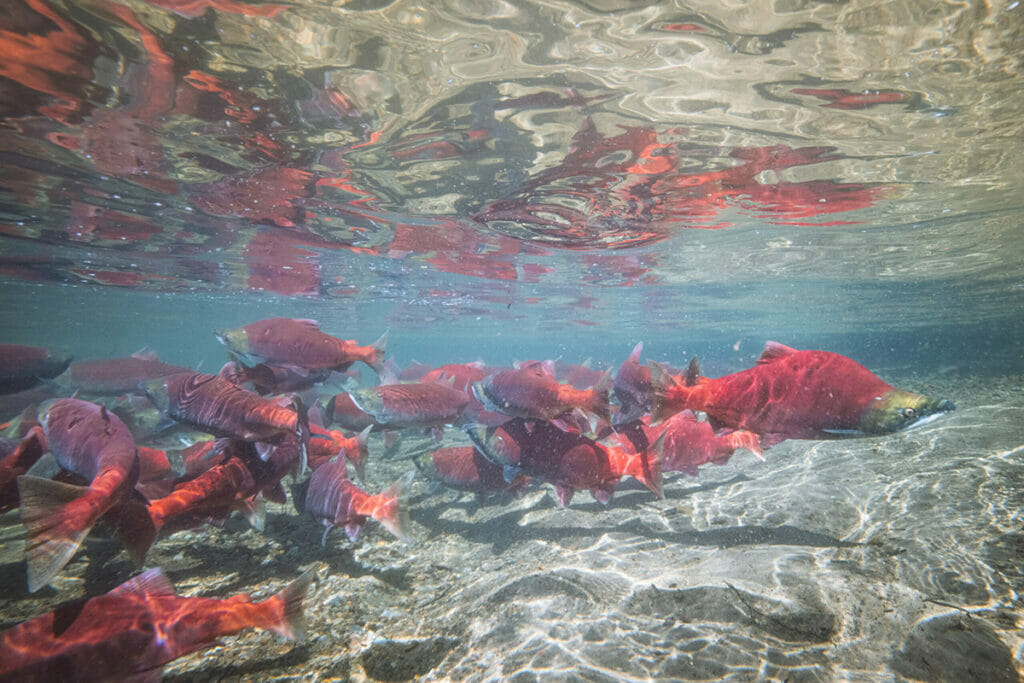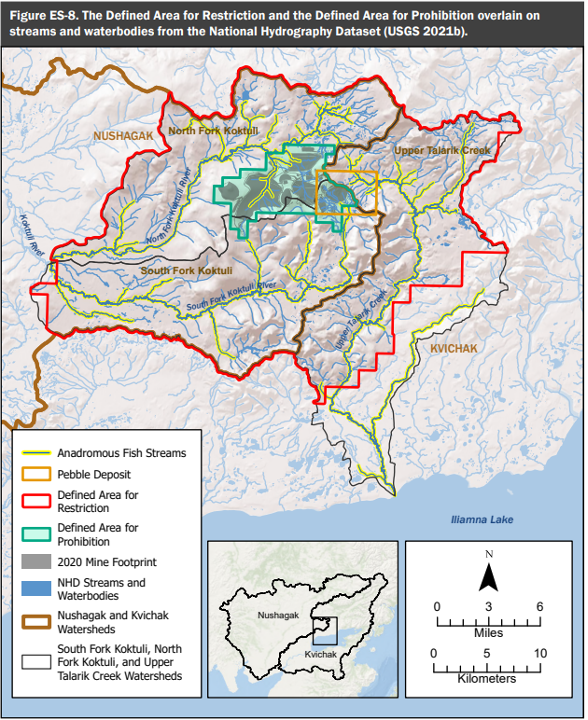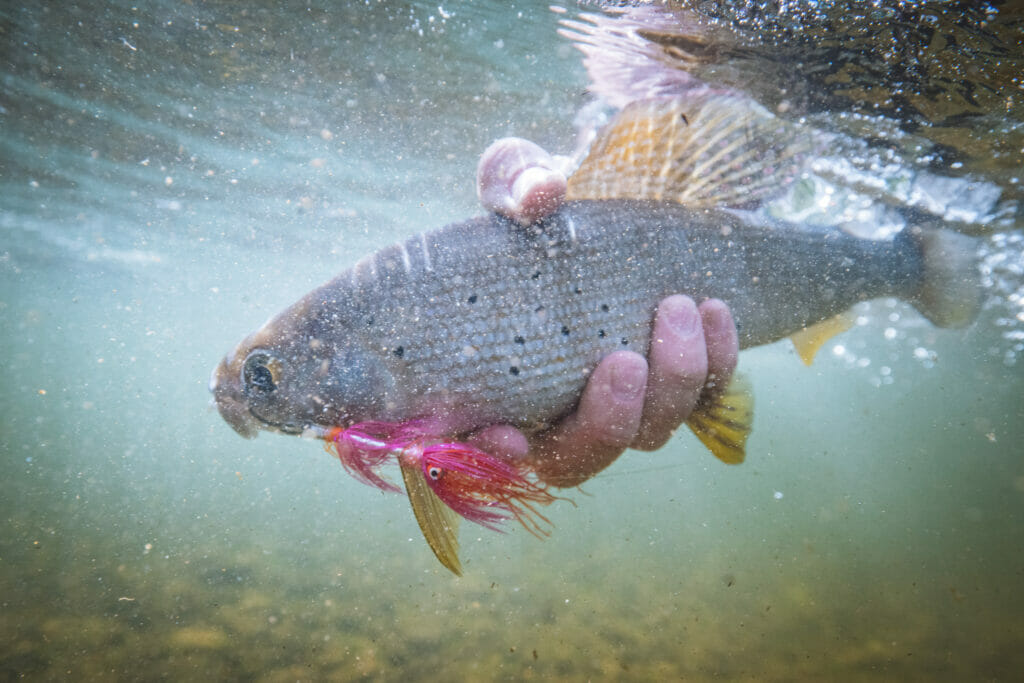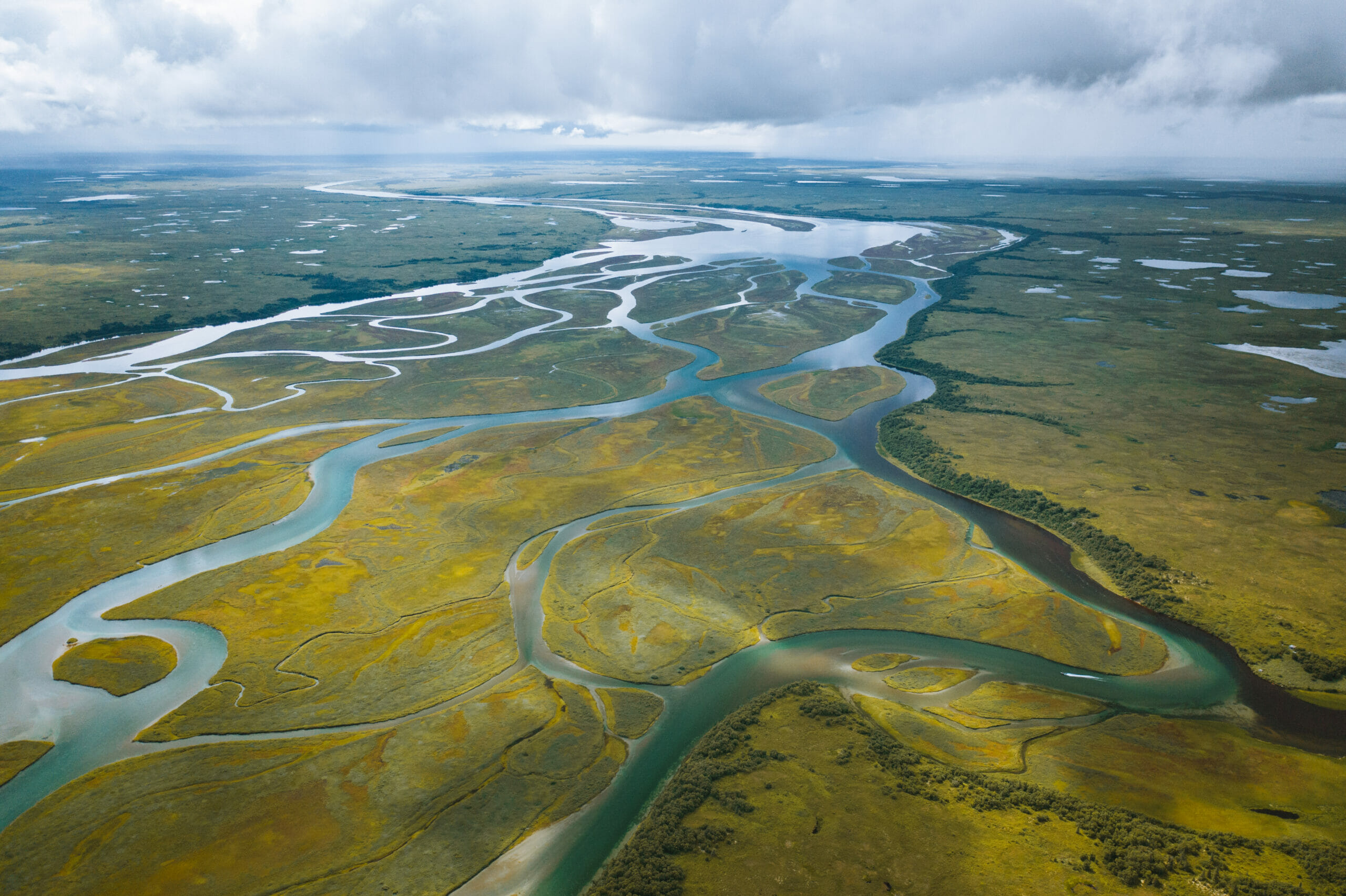At the end of January, we celebrated a monumental milestone in the effort to stop the proposed Pebble mine when the U.S. Environmental Protection Agency (EPA) finalized Clean Water Act safeguards in the headwaters of Bristol Bay. After over a decade of advocating for these protections, Bristol Bay residents and business owners celebrated the decision and were echoed by supporters across the country who know just how important the Bristol Bay region is.

While we celebrate and thank the EPA for these safeguards, we must remember that Bristol Bay is not fully safe yet.
Let’s dive into some of the details to understand exactly what Clean Water Act safeguards mean, and why our work is far from over.
- Clean Water Act safeguards don’t cover the entire Bristol Bay region. These safeguards restrict and prohibit mine waste discharge in the Pebble mine plan area of Bristol Bay. This makes it extremely challenging – but not impossible – for Pebble to operate as they proposed in 2017. There are still other mineral claims and leases in the vicinity that could be mined in the future and that mining would still bring irreparable harm to critical salmon habitat.
- Pebble will likely challenge Clean Water Act safeguards in court. At various stages in the process to obtain Clean Water Act protections for Bristol Bay, the Pebble Limited Partnership and State of Alaska have launched lawsuits to try to slow and complicate process. In November 2022, both parties pledged to sue the EPA over Clean Water Act safeguards. It’s likely that these safeguards will be challenged in court.
Additionally, the Pebble Limited Partnership filed an appeal to the 2020 permit denial that is still being reviewed by the Army Corps of Engineers. If the Corps denies the appeal, Pebble could also sue the Army Corps in an attempt to reverse the decision that initially blocked the mine.

Bottom line, Bristol Bay is not safe until watershed-wide safeguards are put in place that ensure fish and communities are prioritized and maintained as they have been for generations. We cheer every single roadblock issued that makes Pebble less and less likely of becoming a reality. But we don’t let our guard down. It’s been called the project “that rises like a zombie.” And we don’t want to give them any opportunity to get their foot further in the door.
The people of Bristol Bay deserve a future that is self-determined, sustainable and allows them to continue traditions as they have for generations. The overwhelming majority of people have been clear that Pebble is not included in that future. We cheer the progress made that has only happened because of people speaking up for Bristol Bay, but that work is far from over, and we look forward to continuing to push for the ultimate protections that we know this place deserves.

In 2023, the EPA and Army Corps of Engineers finalized a new regulatory definition of “Waters of the United States,” which defines which waters and streams are protected by the Clean Water Act. This new definition includes wetlands and small streams that play a critical role in the health of fish habitat and downstream waters. Join Trout Unlimited in defending this definition, which is currently under attack in Congress and the courts.
Stand up for the Clean Water Act!
Join Trout Unlimited in defending the new “Waters of the U.S.” definition.



